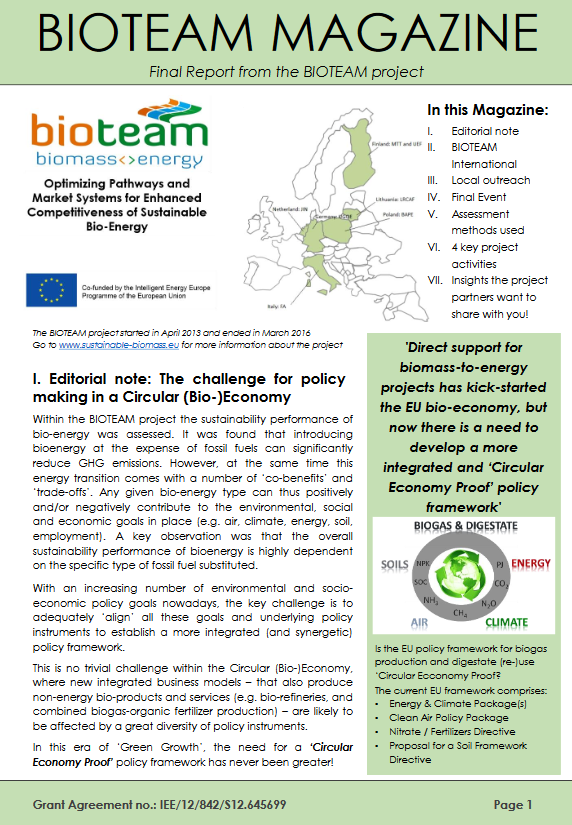BIOTEAM final report: Policy making in a circular (bio-)economy
'BIOTEAM Magazine': final report of the BIOTEAM project (May 2016)

![]() BIOTEAM_Magazine_final_project_report.pdf2.22 MB.
BIOTEAM_Magazine_final_project_report.pdf2.22 MB.
Within the BIOTEAM project the sustainability performance of bio-energy was assessed. It was found that introducing bioenergy at the expense of fossil fuels can significantly reduce greenhouse gas (GHG) emissions. However, at the same time this energy transition comes with a number of ‘co-benefits’ and ‘trade-offs’ . Any given bio-energy type can thus positively and/or negatively contribute to the environmental, social and economic goals in place (e.g . air quality, climate, energy, soil, employment). A key observation was that the overall sustainability performance of bioenergy is highly dependent on the specific type of fossil fuel substituted.
With an increasing number of environmental and socio-economic policy goals nowadays, the key challenge is to adequately ‘align’ all these goals and underlying policy instruments to establish a more integrated (and synergetic) policy framework. This is no trivial challenge within the circular (bio-)economy, where new integrated business models – that also produce non-energy bio-products and services (e.g. bio-refineries, and combined biogas-organic fertiliser production) – are likely to be affected by a great diversity of policy instruments. In this era of ‘green growth’, the need for a ‘circular economy proof’ policy framework has never been greater!
More information on the BIOTEAM project is available at www.sustainable-biomass.eu, or contact project coordinator Eise Spijker.
